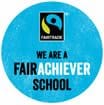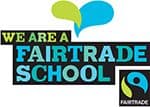S3 Computing Science
Course Overview
Our S3 course follows both Level 3 and level 4 Experiences and Outcomes outlined in The Curriculum for Excellence – Technologies Curriculum Area.
Computers play an important part in today’s society. It is important to be aware of their effects at work, in the home and in our leisure time and to be able to adapt to the inevitable new developments in technology.
The course aims to develop skills and confidence in a range of software which will be beneficial to pupils now and on leaving school.
The course contains 5 main units:
Animation
This unit involves learning about the process behind computer animation. We use piskel editing software to edit bitmap graphics and animate them using frames. This skill allows students to transfer their creativity into representing their own ideas via Computer Animation. These skills are easily transferred into our Games Design NPA Higher and N5 covered in S5 and S6.
Pupils will learn
- to tell stories through animation
- what frames are
- how to add interactivity to animations
- How to use different layers to animate more than one object
Web Design
This unit allows pupils to develop knowledge and an understanding of the components needed to create a web page.
Pupils will create their own web pages using the programming languages HTML and Javascript.
Pupils will learn to
- write in programming code to place text, audio and graphics onto a web page.
- created coded hyperlinks to link the pages together.
p
Software Development and Design
This unit allows pupils to develop knowledge and an understanding of the programming concepts needed to create effective programs.
Pupils will create their own code using a programming languages called Python.
Pupils will learn
- to create their own programs using the software Python.
- the difference between variables and values.
- how to code decision making conditions and use repetition code to create useful programs.
Databases
This unit allows pupils to develop knowledge and an understanding of how a database can be used to solve problems.
Pupils will create databases using the software Microsoft Access & SQL code. They will learn how to
- create fields of the correct data type and populate these fields with data.
- search a database file given search criteria and sort records given the desired order using SQL.
- create reports so that the layout of the resulting records are shown in an attractive format.
Computer Systems
This unit covers:
- the choices of hardware and software that is now available and how it can be used in a range of commercial situations and in the home.
- The legal social and environmental issues of using computers
- The security issues that computer users need to be aware of to keep themselves and their information safe.
p
Methodology
Teacher-led discussion, cooperative group work and formative assessment strategies are used to give pupils the opportunity to demonstrate and improve their knowledge, practical skills and skills for learning, life and work.
Assessment
Pupils undertake an online test at the end of the following topics/units:
Web Design Sept
Security risks and Data Representation Nov
Graphics and Media Types Dec
Software Development and Design May
There will be a written Mid Term Test in January and a written S3 Full Test in May.
Practical work will be assessed throughout the year by the class teacher and learner conversations will take place about progress.
Pupils work will be uploaded onto the ClassNotebook Area on Microsoft Teams.
Recording & Reporting
The written tests and practical assessments form the basis for the comments in the pupil report issued to parents in January. These results are also used to inform decisions about likely progression in S4, when pupils who choose to remain in the Computing Department will study Computing Science at either National 4 or National 5 Levels.
Miss Stalker CL .. Mr Lodge .. Mrs Zafar
June – Sept
- Types of Computers
- Data representation
- Test Sept
September – November
- Operating Systems and Applications
- Database
- The General Data Protection Regulation
- Test Nov
Jan
- Networks
- Security risks
- Security precautions
- S3 Mid Term Test
January – March
- Websites
- Media Types
- Copyright, Design and Patents Act
- HTML and JavaScript
- Test March
April
- Environmental impact
April – May
- The Software Development Process
- Programming
- S3 Full Test May
Resources
Useful websites
St Thomas’s Computing Science Revision Website with interactive Quizzes and revision materials – Click here
If any pupils want to further their understanding of any topics here are links to good websites:
Practical Revision:
Software Design and Development
Download Python for free
Download Brackets for free





